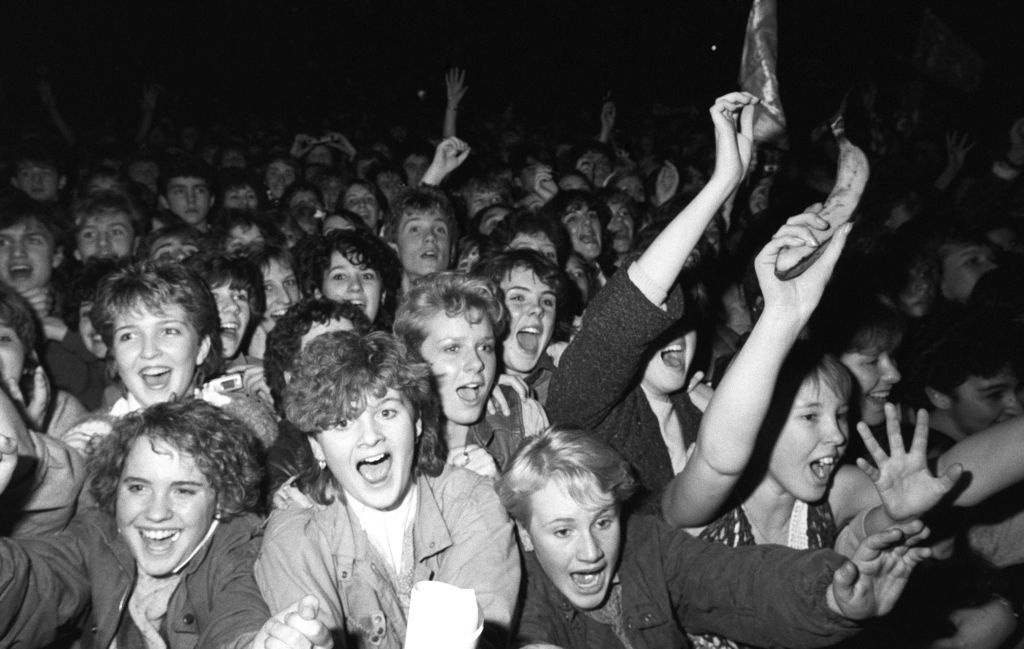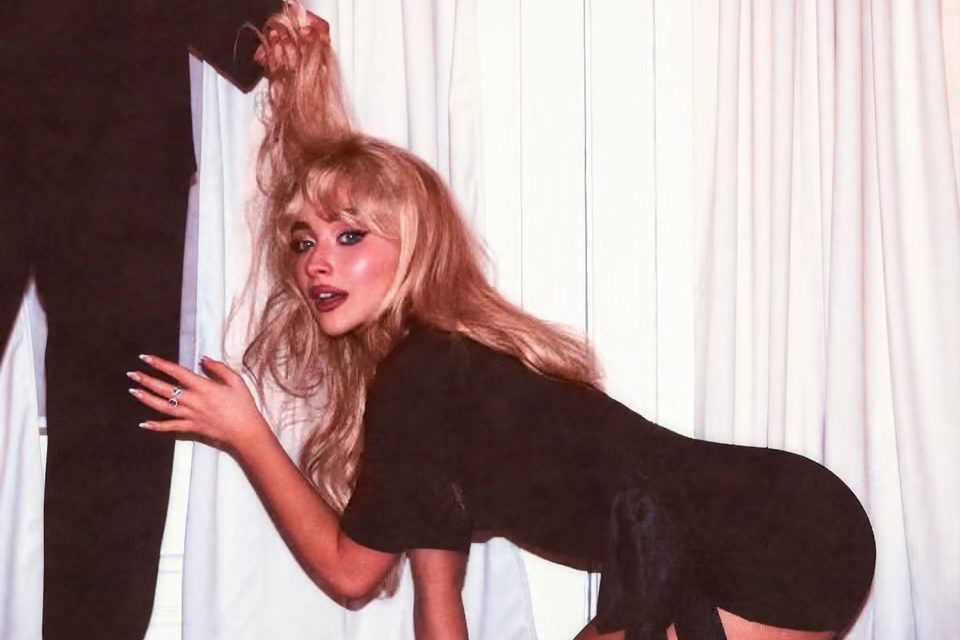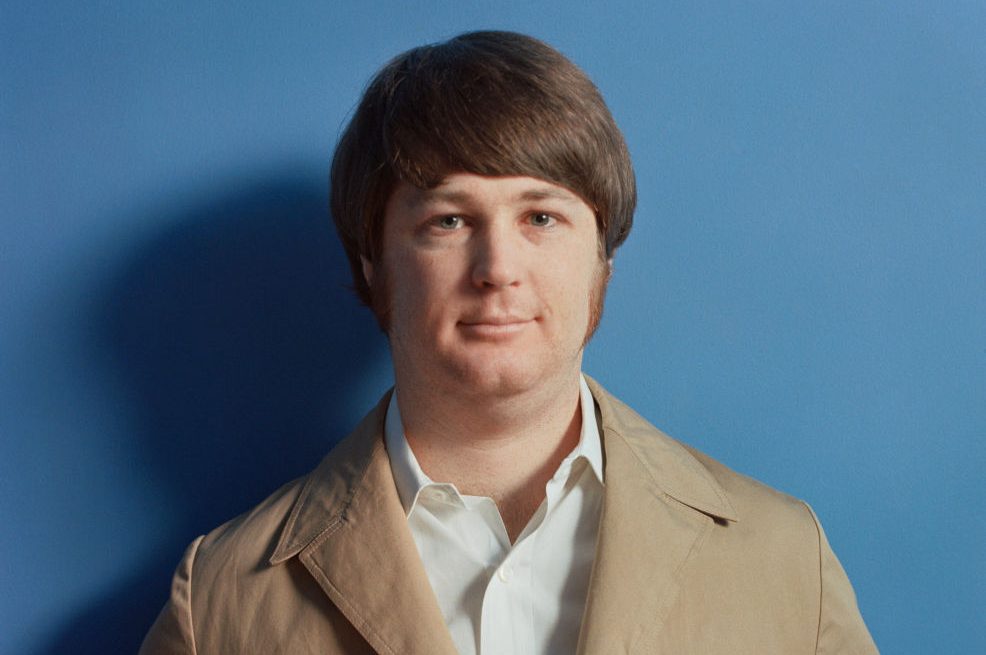Robert Dean Lurie, who had written very good books on worthy rock music subjects (REM, David Bowie and the Church), sure picked the right year — 2020 — to slip into a time machine.
Instead of finding Morlocks and Eloi, as H.G. Wells’s time traveler did, this married father of two in Tempe, Arizona, encountered Walter Mondale and Night Ranger — and he lived to tell his entertainingly perceptive tale.
Lurie explains, “In 2019, I had a premonition that 2020 was going to suck. So I decided to spend the year re-experiencing my favorite year from my [Minneapolis] childhood: 1984.” Chief among Lurie’s reasons for flight was his sense that “the 2020 election was likely to be the most obnoxious of my lifetime,” though he concedes that his goad “may have been a midlife crisis.”
For two to three hours every weekday of the year that Covid stole, Lurie pored over 1984 issues of Rolling Stone, TIME and US News & World Report; read the bestsellers of the day; and watched and listened to the year’s movies and TV shows and albums — all in chronological order. He lays out his conceit: “My forty-five-year-old self is inhabiting my nine-year-old body, taking in the world of 1984 in real time with the perspective of all that I have learned since then. But at other moments I am looking back and remembering (or commenting) in the more conventional sense.
“In deference to people who get bent out of shape when they discover that Thoreau didn’t live at Walden Pond continuously,” he confesses, “I must own up that I took breaks.” His wife Harper tolerated his retreat into the past, but his kids “grew to loathe American Top 40 with Casey Kasem.”
Lurie’s cogitations are now appearing, month by corresponding month, at robertdeanlurie.substack.com, and he anticipates a book before long. He will also release a “very-limited-edition vinyl LP containing reinterpretations of 1984 hits,” which I’m betting will be as inventively offbeat as “The Dark Side of Hall & Oates,” recorded a decade and a half ago by Lurie’s mysterious, theosophically named combo Koot Hoomi. (Check out Koot Hoomi’s helicopters-in-Kabul version of “Kiss on my List,” available on YouTube.)
The time-traveling revenant admits that during his immersion in what he calls “the last period of an American monoculture” he watched too much Heather Locklear (a pardonable offense) and enjoyed hearing Paul McCartney and Michael Jackson warble “Say Say Say,” which borders on the inexcusable. He loved Hill Street Blues and Magnum, P.I. and scorned the “prefab rebellion” conceit of the execrable Footloose — “an asshole preacher is about the safest possible Hollywood villain next to a Nazi.”
Although he is of a generally conservative bent, Lurie was struck by the realization that Jesse Jackson was the worthiest candidate in the Democratic Party’s presidential scrum of 1984.
I particularly enjoy Lurie’s descants on pop music — even though I loathe the tunes he lauds. His boyhood radio memories (Ray Parker Jr., Van Halen) are not mine (the Grass Roots, the Partridge Family), and as the obscure twentieth-century playwright Wanda Frank observed, in matters of mass culture the question of nuggets or dross largely depends upon which year you were born.
“As I’ve gotten older, I have done my best to shed the musical snobbishness I picked up as a teenager,” Lurie says. “Because, in my innermost heart, I never stopped loving pop music. Melody is not snobbish; it visits Madonna, Duran Duran, Lionel Ritchie and Kenny Loggins,” too.
Lurie even descended into the hellish world of MTV, whose archetypal video, he notes, features “an innocent, sheltered young woman [who] finds herself in a strange and initially terrifying new environment, but comes to a Kate Chopin-style sensual awakening courtesy of…a bunch of hard-rock knuckleheads.” (Fortunately, across town in 1984 Minneapolis the Replacements were banging out “Seen Your Video/it’s phony rock and roll.”)
As the Lurian 2024/2020/1984 enters the home stretch, I’m looking for Red Dawn on the horizon and Nightmare on Elm Street in Robert’s dreams.
“For all its violence and utter weirdness, I’m glad to be back in 2024,” Lurie tells me. “As a parent, I don’t have the luxury of pessimism. 2024 is to my children what 1984 was to me. They will look back on this time fondly, and they won’t be wrong. In our small pocket of existence there is joy. Also, for most of us not living in a war zone, 2024 is a hell of a lot better than 2020.”
This article was originally published in The Spectator’s September 2024 World edition.


























Leave a Reply